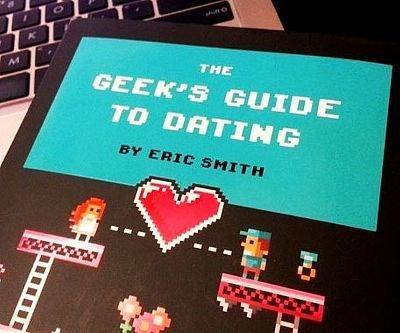Nu het stof van de #verkiezingscampagnes is neergedaald mogen we concluderen, dat #verkiezingen vandaag niet alleen worden gewonnen door een goed #programma maar vooral door #charisma van de #leider : vriendelijk gezicht (#bontenbal), lekker bekkie (#Jetten), stralende lach (#mamdani). Daar kon serieuze #sinterklaas #timmermans niet tegenop. En de kunstmatig opgewekte maar o zo #zure #yesilgoz helemaal niet.
#Charisma
Charisma Trumps Debates - Ben Shapiro on Triggernometry
Reality check: a dating book with more charisma than my group chat. The Geek's Guide To Dating Book levels up charisma, speechcraft, and real-world meetups. 👉 https://chunkyfinds.com/geek-s-guide-to-dating-book #GeekDatingGuide #DatingBook #Charisma
♪ "イイナヅケブルー" by "Charisma.com" (2014) on album "DIStopping", Composed by "いつか, 守尾崇" #NowPlaying ♬
投稿者がこの楽曲を再生した回数は "1回" です(`・ω・´)
よかったら配信見に来てね
https://www.youtube.com/watch?v=iQCyiVUOm_w
#Charisma.com
♪ "ハッピーターン" by "Charisma.com" (2014) on album "DIStopping", Composed by "いつか, 塚田耕司" #NowPlaying ♬
投稿者がこの楽曲を再生した回数は "9回" です(`・ω・´)
よかったら配信見に来てね
https://www.youtube.com/watch?v=iQCyiVUOm_w
#Charisma.com
https://www.wacoca.com/videos/2997755/voice-actor/ 【10/30(木)19:00〜プレミア公開】カリスマ『カリスマ ワールド エキスポ』一夜限りプレミア公開 #1030木1900プレミア公開カリスマカリスマ #7人のカリスマ #BALCOLONY #charisma #CharismaHouse #karisuma #Vlog #VoiceActor #アニメ #エキスポ一夜限りプレミア公開 #えびも #お笑い #カリスマ #カリスマチャージ #カリスマハウス #かりちゅま #キャラ #キャラクター #シェアハウス #テラ #ヒプノシスマイク #ヒプマイ #ボボンガリンガ #ワールド #七人のカリスマ #二次元 #伊藤ふみや #声優 #大河元気 #天堂天彦 #小野友樹 #山中真尋 #日向朔公 #本橋依央利 #松原秀 #橋詰知久 #湊大瀬 #猿川慧 #男性声優 #福原かつみ #細田健太 #草薙理解 #보봉가링가 #카리스마 #카리스마노래 #카리스마하우스
Endless Conversation: The Ultimate Guide To Never Running Out Of Things To Say In Another Language
Borwny Quinz 25 (II.)
Borwny Quinz 25 (II.) Most subscribers Instagram social media black woman influencers as instagirl ranked list by 2025.
Hashtags (32.):
#blackwoman #ebony #negro #creol #instagirl #influencer #gossip #blackdancing #gallerie #relationship #model #aesthetics #fan #charisma #talent #tropical #latin #catwalk #outfit #chic #coach #zumba #ceo #grwn #bet #esquisito #feed #segiradzsi #favourite #inspo #bet #feed
In a stunning revelation, it turns out that Peter Thiel's secret lectures on the #antichrist are less about the end times and more about his own #charisma 💁♂️. Apparently, the real #apocalypse is having to sit through another tech mogul's existential ramblings 🚀.
https://www.theguardian.com/technology/ng-interactive/2025/oct/10/peter-thiel-antichrist-lectures #PeterThiel #TechMogul #ExistentialRamblings #HackerNews #ngated
Peter Gabriel, Ein Deutsches Album, 1980 on Charisma
This is the German language version of the third album Gabriel put out as self-titled (“Peter Gabriel”) but popularly known as Peter Gabriel III or “Melt” – listed in this case as Ein Deutsches Album (a German album).
The songs:
- Eindringling (Intruder)
- Keine Selbstkontrolle (I Don’t Know How To Stop / No Self-Control)
- Frag mich nicht immer (I Don’t Remember)
- Schnappschuß (ein Familienfoto) (Family Snapshot)
- Und durch den Draht (And Through The Wire)
- Spiel ohne Grenzen (Games Without Frontiers)
- Du bist nicht wie wir (Not One Of Us)
- Ein normales Leben (Lead A Normal Life)
- Biko (Biko)
I love alternate language versions of albums and wish more people did them.
My copy—via A1 Records in NYC–is a PRS Hanover pressing, unfortunately missing the black & white insert with the German lyrics, though it has the original English language full color insert.
#1980 #1980s #A1Records #Charisma #Germany #NYC #PeterGabriel #PRSHanover #vinyl #vinylcollection #vinylfinds
Rebecca Dai has graced us with 50 mind-blowing "truths" that could fit on a fortune cookie 🥠—if fortune cookies were pretentious. Apparently, discipline is a hoax, and not caring is the secret sauce to #charisma 😎. Spoiler alert: Being fake famous leaves you empty inside, who would have thought? 🙄
https://rebeccadai.substack.com/p/50-things-i-know #RebeccaDai #Truths #FortuneCookie #FakeFamous #HackerNews #ngated
Charisma is coherence.
Coherence is not about specificity, not about greatness, not about peace. It's not about being right.
Coherence is when breath, thought, word, body and energy all sing the same tone.
People can feel this throughout the room. They don't need to agree — they just can't ignore it.
Charisma ist Kohärenz.
Bei Kohärenz geht es nicht um Besonderheit, nicht um Größe, nicht um Frieden. Es geht nicht darum, Recht zu haben.
Kohärenz ist, wenn Atem, Gedanke, Wort, Körper und Energie alle den gleichen Ton singen.
Menschen können das im ganzen Raum spüren. Sie brauchen nicht zuzustimmen — sie können es nur einfach nicht ignorieren.
🤔🧐🥸😎🤓💁🏿♀️*11 Truly Unique Traits Of Highly Charismatic People👉
11 Truly Unique Traits Of Highly Charismatic People | YourTango https://www.yourtango.com/self/truly-unique-traits-of-highly-charismatic-people
António Guterres's sin. But he will be absolved after confession. #UnitedNations #leadership #charisma #boldness
https://www.theguardian.com/commentisfree/2025/aug/26/un-recover-courage-palestine-ukraine-sudan
#Weselsky hat #Erfahrung in schwierigen, teilweise undankbaren Rollen. Aber mir scheint da würde er sich seinen wohlverdienten Ruhestand verhageln. Denn ob andere, noch vorhandene #Führungskräfte überhaupt mehrheitlich die richtige #Besetzung für die #Verbesserung der #Bahn sind und sie sein Handeln nicht torpedieren wäre in meiner Vorstellung nicht auszuschließen... in "höheren Rängen" im #Konzern, zuständigen #Behörden von Bund und Ländern und in der #Bundesregierung nehme ich keinen glaubwürdigen Willen zur Veränderung wahr.
Power is Paramount - Bryan Johnson
Power is Paramount - Bryan Johnson








